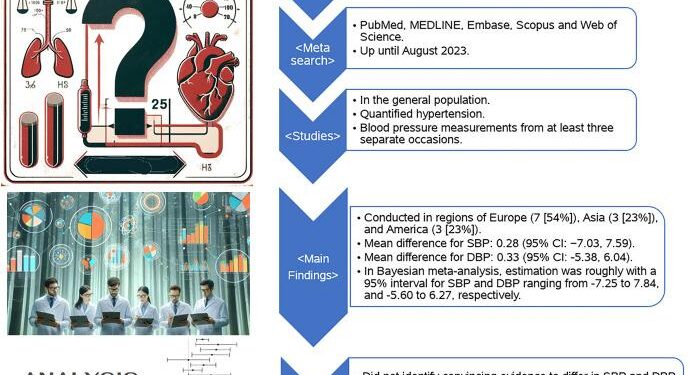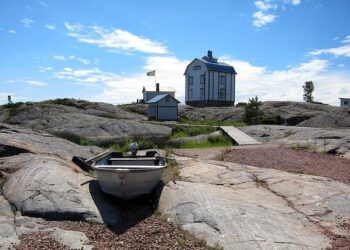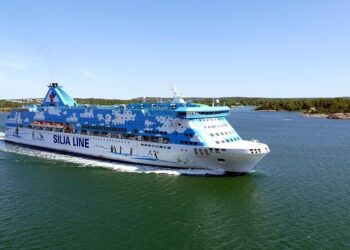On 25 August 2025, President of the Republic of Finland Alexander Stubb delivered the keynote address at the Baltic Sea Parliamentary Conference held in Mariehamn, Ă…land Islands. Addressing regional lawmakers and stakeholders, President Stubb highlighted critical issues facing the Baltic Sea region, emphasizing cooperation, sustainability, and security. The speech underlined Finland’s commitment to fostering stronger partnerships among the Baltic nations amid evolving geopolitical and environmental challenges. This article provides an overview of the president’s key points and the broader significance of the conference for regional collaboration.
President Alexander Stubb Emphasizes Regional Unity and Sustainable Development in Baltic Sea Cooperation
President Alexander Stubb highlighted the critical importance of fostering regional unity among the Baltic Sea countries to tackle shared challenges effectively. Addressing leaders at the Baltic Sea Parliamentary Conference, he called for strengthened cooperation in areas such as climate action, economic resilience, and sustainable infrastructure. Stubb emphasized that “only through collaborative efforts can we secure a prosperous and environmentally stable future for all nations bordering the Baltic Sea.” His message resonated deeply with delegates, underlining the need for a joint commitment to innovative solutions and policy alignment.
Among the key initiatives proposed were:
- Enhanced renewable energy projects to reduce carbon emissions collectively.
- Joint maritime conservation programs aimed at protecting the Baltic Sea’s unique ecosystem.
- Cross-border economic partnerships designed to drive sustainable growth and job creation.
| Focus Area | Target for 2030 | Lead Countries |
|---|---|---|
| Renewable Energy Expansion | 50% increase in offshore wind capacity | Finland, Sweden, Denmark |
| Marine Biodiversity | 30% protected marine areas | Estonia, Latvia, Lithuania |
| Economic Collaboration | 25% growth in green tech startups | All Baltic States |
Innovative Policy Measures Proposed to Combat Climate Change and Enhance Maritime Security
President Alexander Stubb emphasized the urgent need for groundbreaking approaches to address the dual challenges of climate change and maritime security across the Baltic Sea region. Highlighting the interconnectivity of environmental protection and geopolitical stability, he proposed a multi-faceted strategy that integrates advanced surveillance technologies with robust environmental regulations. Key initiatives include the deployment of AI-driven monitoring systems to detect illegal fishing and maritime pollution in real-time, paired with stricter emission controls on shipping vessels to drastically reduce the Baltic Sea’s carbon footprint.
In addition to technological advancements, the President outlined a cooperative framework that fosters enhanced collaboration between regional governments, private sector stakeholders, and scientific communities. He underscored the importance of:
- Joint investment in renewable maritime infrastructure such as offshore wind farms and green ports.
- Shared maritime data platforms to improve transparency and response efficiency.
- Introducing adaptive legislation that supports innovation while ensuring maritime safety standards.
| Policy Measure | Expected Impact | Timeline |
|---|---|---|
| AI-Powered Monitoring Networks | Real-time pollution and security alerts | 2026-2028 |
| Emissions Regulation Expansion | Reduce shipping emissions by 40% | 2025-2030 |
| Renewable Maritime Infrastructure | Increased energy sustainability | 2027-2032 |
Focus on Strengthening Economic Ties and Digital Infrastructure Across the Baltic Sea Region
The Baltic Sea Region holds immense potential for fostering robust economic collaboration that benefits all member states. Enhancing cross-border trade, simplifying regulatory frameworks, and promoting innovation-driven industries are crucial steps toward a resilient regional economy. Emphasizing renewable energy projects, sustainable logistics networks, and small and medium-sized enterprises (SMEs) will drive growth and job creation. By reinforcing partnerships, the region can capitalize on its strategic position as a gateway between Eastern and Western Europe, supporting shared prosperity in an increasingly competitive global market.
In parallel, investing in cutting-edge digital infrastructure is imperative to ensure seamless connectivity and enhance competitiveness. Improved broadband access, 5G deployment, and data security cooperation form the backbone of a modern digital ecosystem. Priority areas include:
- Cross-border fiber-optic networks to unlock faster communication and data exchange
- Joint cybersecurity initiatives to protect critical infrastructure
- Digital skills development to prepare the workforce for the future economy
| Digital Infrastructure Project | Estimated Completion | Regional Impact |
|---|---|---|
| Baltic Sea Fiber Link | 2027 | Enhanced interconnectivity |
| Cybersecurity Alliance | 2026 | Improved digital safety |
| Regional Digital Skills Hub | 2025 | Upskilled workforce |
Wrapping Up
In conclusion, President Alexander Stubb’s keynote at the Baltic Sea Parliamentary Conference underscored Finland’s commitment to regional cooperation and sustainable development in the Baltic Sea region. Speaking from Mariehamn in the Ă…land Islands, the President highlighted the shared challenges and opportunities facing the coastal nations, emphasizing dialogue, environmental stewardship, and security as pivotal priorities. As the Baltic Sea continues to be a vital corridor for trade and cultural exchange, Stubb’s address reaffirmed Finland’s role as a proactive partner working toward a more integrated and resilient region. For further details and the full text of the speech, visit presidentti.fi.
















